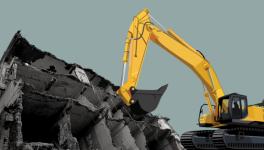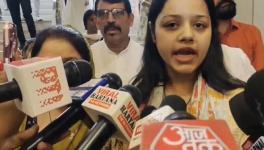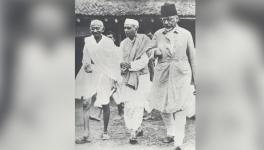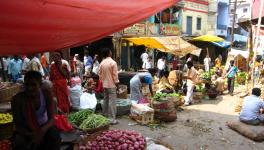How Muslims Feel About Closure of Jama Masjid
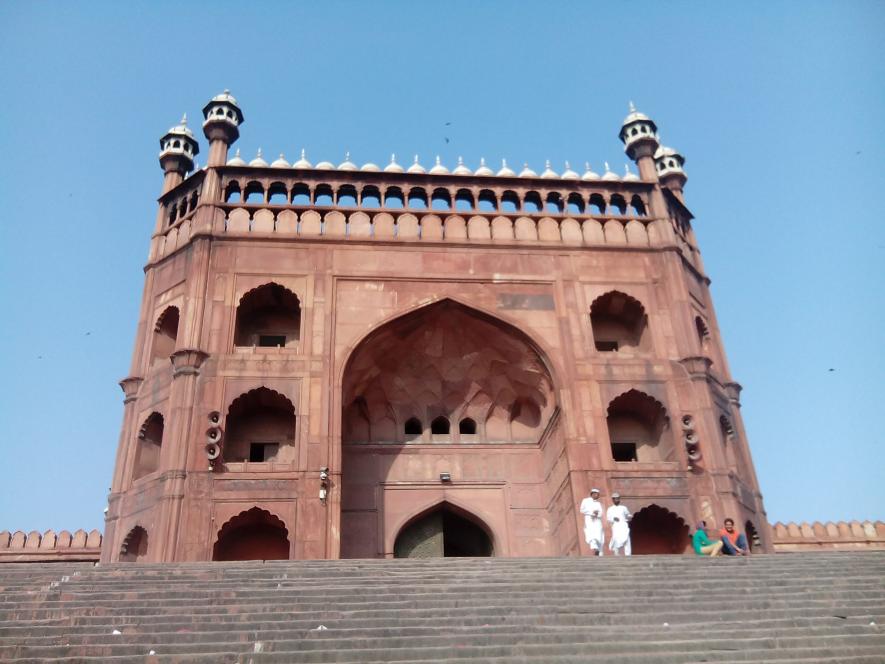
On 8 June, the 17th-century Jama Masjid in Delhi reopened its gates, allowing the faithful to congregate again to pray five times a day. Within days, the gates were clamped shut again. However, instead of complaining, a large number of Muslims are actually welcoming the closure of the mosque.
The reason is that the raging Covid-19 pandemic has taken a toll on everything, including one of the country’s biggest mosques. The pandemic has created a fear psychosis among residents of the national capital in particular, for it is the second-worst hit zone in the country. The Delhi government has estimated that around 1,200 people have died of Covid-19, but the numbers of the Municipal Corporation of Delhi suggest the toll is at least twice as high.
Even before the arrival of the Novel Coronavirus in India, the shabby condition of the capital’s healthcare facilities was evident to residents. Once the lockdown was relaxed by the Centre and the state government, these inadequacies became even more apparent, as both the number of infections and the cost of hospitalisation zoomed. So it is not just the fear of contracting the virus that has Delhi worried. Nor is it just the prohibitive cost of hospitalisation and treatment. It is the utter lack of medical facilities that has painted a doomsday-like scenario in the minds of the people. Even the privileged upper crust of the middle class are finding it difficult to get admission in a government or private hospital. This has sparked an intense fear of the unknown among Delhi’s residents.
When places of worship were thrown open to devotees, in the government’s so-called Unlock-1 phase, all religious sites started receiving large numbers of visitors. During the lockdown, entry had been restricted to just a couple of devotees at a time. Right after reopening, positive cases of Covid-19 in Delhi started ballooning. Religious gatherings are not the only reason why the virus is spreading, but Muslims began to fear that healthy attendance at mosques would lead to bigger gatherings, and more infections would follow. The trigger for shutting the Jama Masjid came merely two day after it had reopened when the PRO of Jama Masjid’s imam, Ahmad Bukhari, and one of his cousins, Amanullah, succumbed to the viral infection.
This prompted the imam of the mosque, historically known as Masjid-i Jehan Numa, to seek the counsel of Islamic scholars and the management of other mosques on whether to continue prayers or limit entry to just four or five people at a time, as it was during the lockdown.
Ahmad Bukhari, the imam of Jama Masjid, tells me that the Jama Masjid Management Committee decided to limit congregational prayers to just five people at a time after seeking public opinion and consulting Islamic scholars from the national capital and beyond. “It is keeping in mind the safety of the devotees that it has now been decided that no congregational prayers will be performed at Jama Masjid till 30 June,” he said. Just like during the lockdown, only a few people will be allowed to offer prayers in the mosque. “The general public is being advised to offer prayers at their homes,” Bukhari said.
Bukhari’s family of Islamic scholars has presided over prayers at the mosque, which was built by the Mughal emperor Shah Jahan in 1656, for thirteen generations. He earlier told news agency ANI that the situation in Delhi is critical and it was important to protect oneself and other fellow beings from the danger of infection. The rapid spread of Covid, especially the alarming rate at which it was being detected in many colonies of Delhi were also factors. Then came the announcement by the Delhi government that the estimated number of affected persons in Delhi alone is likely to reach 5.5 lakhs by the end of July. This “has shaken every soul,” the cleric said.
Bukhari has not just shut the gates of the historic Shah Jahani mosque, but also advised the managements of other mosques to consider suspending prayers. Given his influence among many sections of the Muslim community, there are reports from across the national capital of mosques heeding his counsel. In Shaheen Bagh, which was the epicentre of the anti-CAA movement, several mosques have decided to suspend congregational prayers for another twenty days, until the end of June.
In Old Delhi too, following the appeal of the head cleric of Jama Masjid, several mosques have limited entry of devotees to just four or five, as was the case during the lockdown. However, the Muslim community seems vertically divided on the issue. A large number of people have expressed disappointment that the mosques are being shut. Quite a few naysayers are holding on to the view the Coronavirus is being used to suppress the Muslim community.
Dr Raziul Islam Nadwi, a reputed Islamic scholar who edits the Tahqeeqat-e-Islami quarterly, tells me, “There are two types of people within the community. One sees Covid-19 as a conspiracy and does not believe in any social distancing norms or in the guidelines of the government or expert advisories. On the contrary, they believe the pandemic is being misused to suppress the community. They take those within the community who support following the guidelines as fools.” Nadwi says that he, too, was criticised when he advised people to follow the hygiene and social distancing norms.
Nadwi says there is no harm if Muslims stick to the advice of the imam of Jama Masjid to limit the size of gatherings at the mosque. However, he says, those mosques which decide to continue with congregational prayers should follow all physical distancing and hygiene norms to ensure against community spread of the pandemic among the faithful.
Waris Mazhari, who teaches Islamic studies in Delhi’s Hamdard University, says the decision to shut the Jama Masjid is timely and commendable. “There are multiple examples of mosques being closed due to pandemic in Islamic history and the decision is keeping in mind the severity of the health crisis afflicting not just Delhi or India, but the entire world,” he says.
Mazhari says that independent reasoning, or ijtihad, is no longer used by the Ulema to solve intricate new issues that keep arising in today’s fast-changing world. Covid-19 has presented a peculiar set of issues before the world. While all of humanity is bogged down by the mysterious virus that causes the Covid-19 disease, Muslims need to adopt ijtihad in a big way he says. “That is how, thorough reasoning, they must resolve the issues that arise out of the raging pandemic,” Mazhari says.
However, the Muslim community, especially South Asian Sunni scholars, have seemingly shut the doors to ijtihad after the 10th century. They have restricted themselves to largely mundane issues when today’s challenges need independent reasoning to resolve. For instance, when the infection rate is said to be rather high among the Muslims in Delhi, it is prudent that they devise a strategy to drastically reduce the chances of people being exposed to the virus.
There is also the issue of recent bitter history: the Muslims of Delhi were made a target to spread misinformation about Covid-19 and blamed for spreading it in the capital and neighbouring areas. This targeting has had a twofold impact on the community: some started feeling that they would be blamed anyway, which explains the persistent belief among a section of Muslims that the virus is being used as a ruse to fuel social conflict. However, after the same episode, a large sections of Muslims determined to be extra cautious, to avoid both the infection and yet another round of scapegoating.
Sadly, many try to shout down the suggestions of the wise, but there is no room for raw bravado today. The poorer sections of society are more vulnerable to Covid-19 and Muslims, being among the poorest, may well be at higher risk of infection. This may be because they live in cramped quarters in crowded localities or because there was more intensive testing where they live. Whatever the reason, the priority should be to tackle this pandemic by keeping the community and the city of Delhi safe.
The author is a writer and columnist. The views are personal.
Get the latest reports & analysis with people's perspective on Protests, movements & deep analytical videos, discussions of the current affairs in your Telegram app. Subscribe to NewsClick's Telegram channel & get Real-Time updates on stories, as they get published on our website.










